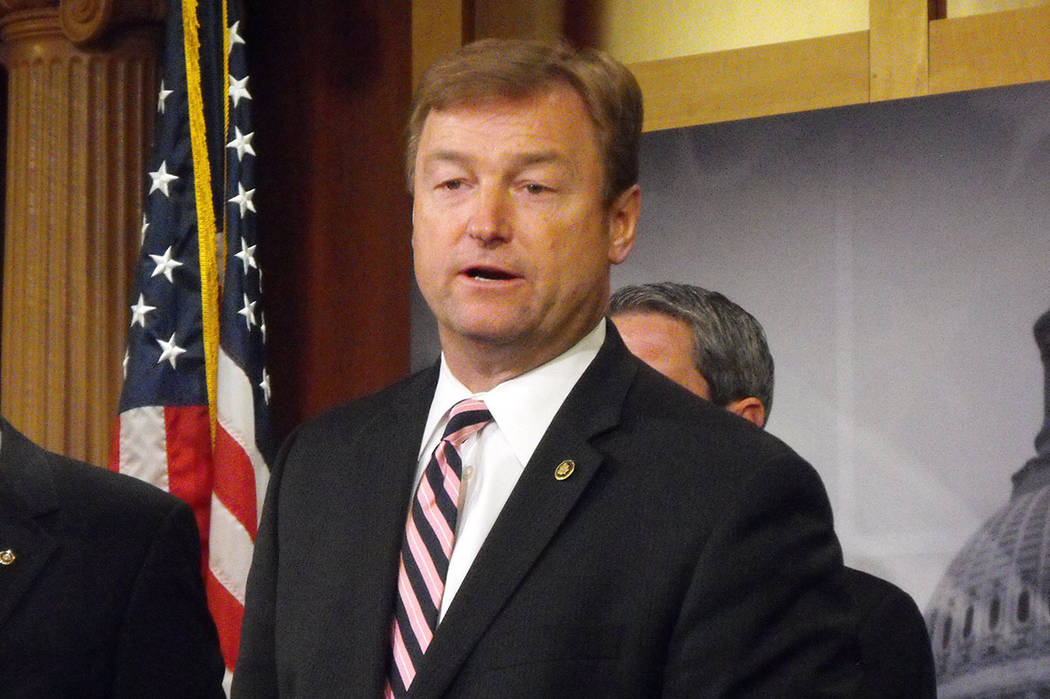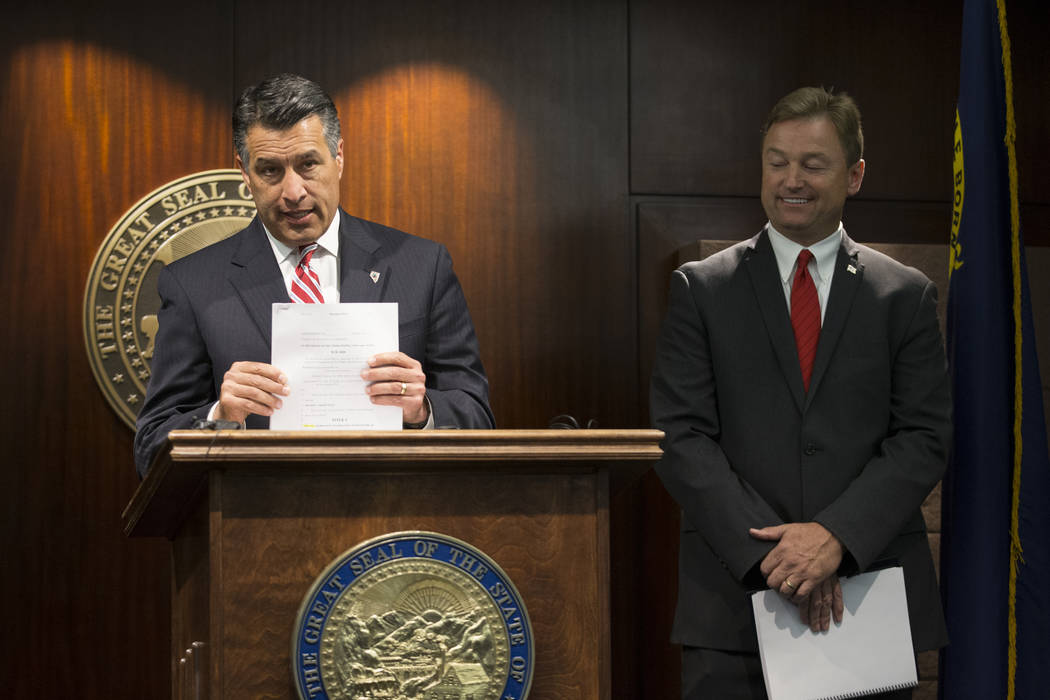Group twists truth in health care ad targeting Heller




It’s easy to make heart-wrenching ads when you’re not bound by pesky things like the truth.
Keep that in mind when you see television commercials shrieking that people will die if Sen. Dean Heller votes for Republicans’ Obamacare replacement. Opposing groups are spending big to deceive Nevadans about the impact of that bill.
Consider an ad campaign recently begun in Nevada by the Progressive Change Campaign Committee. It features Micah Spence, a 38 year-old with cerebral palsy.
“When I hear that President Trump and Senate Republicans want to cut her Medicaid, I want to cry,” says Priscilla Spence, Micah’s mom. “I can’t afford Micah’s care if this bill passes. Without it, my daughter could die from seizures.”
Saying that “Republicans want to cut her Medicaid” is untrue on two levels.
Overall Medicaid spending would increase by over $65 billion under Senate Republicans’ plan.
But it’s also false for disabled adults like Micah. Obamacare didn’t change the Medicaid eligibility of disabled adults.
For those previously eligible for Medicaid, there are no changes through 2019. From 2020 through 2024, the Senate bill provides that spending on disabled adults will grow no faster than the rate of medical inflation plus 1 percent. The Congressional Budget Office projects that spending on those individuals will be lower than that cap before the growth rate is limited to the normal rate of inflation in 2025.
“(The Senate bill) block-grants Medicaid,” said Progressive Change Campaign Committee spokeswoman Kaitlin Sweeney. “In which case, no longer would the federal government provide reimbursements. States could lower the income threshold and could cut the amount of doctors who take Medicaid.”
Sweeney said slower growth rates under mandatory block grants could cause Micah to lose care because “states will have to make up the costs.” I told Sweeney that the bill would make block grants optional.
“No,” she insisted. “Every state gets a block grant.”
Perhaps she should inform the CBO.
“Starting in 2020, under this legislation, states would have the option to receive federal aid for providing medical assistance to non-disabled adults (excluding adults made eligible for Medicaid by the ACA) in the form of a block grant rather than under a per-enrollee cap,” the CBO writes.
So block grants are optional and don’t apply to disabled adults. Seems relevant when your ad relies on both those things to dubiously claim a disabled woman’s life is at risk.
As I pressed Sweeney to justify the emotional claims made in the ad, she eventually acknowledged, “This is all hypothetical.”
You don’t say.
Turns out the truth doesn’t advance the agenda.
Victor Joecks’ column appears in the Nevada section each Sunday, Wednesday and Friday. Contact him at vjoecks@reviewjournal.com or 702-383-4698. Follow @victorjoecks on Twitter.













